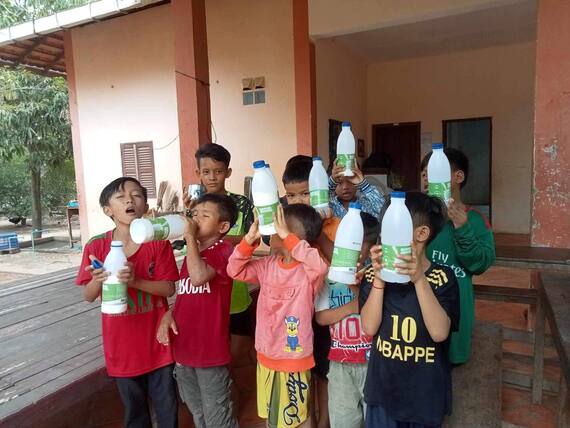Mr. Peou Sedara, Official of the Department of International Law and Diplomacy, International Relations Institute of Cambodia (IRIC)
The Association of Southeast Asian Nations (ASEAN) has been a cornerstone of regional cooperation and stability in Southeast Asia since its inception in 1967. The organization's success is largely attributed to its diplomatic strategies, which have fostered unity among its diverse member states. However, in the face of rising geopolitical tensions, economic disparities, and social challenges, ASEAN's unity is being tested. In this sense, it’s crucial to explore various diplomatic strategies that can be employed to strengthen ASEAN unity and ensure the organization's continued relevance and effectiveness in the 21st century.
First, building Consensus through Enhanced Dialogue Mechanisms: One of the key diplomatic strategies for strengthening ASEAN unity is enhancing dialogue mechanisms to build consensus on critical issues. ASEAN's principle of decision-making by consensus has been a fundamental aspect of its diplomacy. However, as the region faces more complex challenges, there is a need for more robust dialogue mechanisms that can facilitate deeper discussions and more effective conflict resolution. Establishing regular high-level summits, sector-specific dialogues, and informal consultations can provide platforms for member states to engage in open and constructive discussions, leading to stronger consensus and collective decision-making.
Second, promoting Inclusivity and Equal Participation: ASEAN's diversity is both a strength and a challenge. To enhance unity, diplomatic efforts must focus on promoting inclusivity and ensuring the equal participation of all member states, regardless of their economic or political power. Initiatives such as the Initiative for ASEAN Integration (IAI) and the ASEAN Community Vision 2025 aim to narrow the development gap and promote inclusivity. Diplomacy should further encourage the active involvement of smaller or less developed member states in decision-making processes and regional initiatives, ensuring that their voices are heard and their interests are represented.
Third, strengthening Institutional Capacity: The effectiveness of ASEAN's diplomacy is closely tied to the strength of its institutions. Strengthening the institutional capacity of the ASEAN Secretariat and other key bodies is essential for enhancing coordination, implementation, and monitoring of regional initiatives. This can be achieved through increased funding, capacity-building programs, and the adoption of modern management practices. A stronger institutional framework will enable ASEAN to respond more effectively to emerging challenges and ensure the successful implementation of its diplomatic strategies.
Fourth, enhancing External Relations and Strategic Partnerships: ASEAN's diplomacy extends beyond its member states, with external relations playing a crucial role in its strategic positioning. Strengthening partnerships with key global and regional actors, such as China, the United States, the European Union, and other regional organizations, is vital for enhancing ASEAN's influence and ensuring its interests are represented on the global stage. Through strategic partnerships, ASEAN can leverage external support for its initiatives, enhance its capacity to address transnational challenges and promote a rules-based international order.
Fifth, fostering People-to-People Connectivity: ASEAN unity is not just about government-level diplomacy; it also involves fostering connections among the peoples of Southeast Asia. Cultural diplomacy, educational exchanges, and people-to-people connectivity programs can help build a sense of ASEAN identity and solidarity. Initiatives like the ASEAN Youth Volunteer Program (AYVP) and the ASEAN University Network (AUN) are examples of how people-to-people connectivity can be enhanced. By promoting mutual understanding and cultural appreciation, ASEAN can strengthen the social foundation of its unity.
Lastly, adapting to Emerging Challenges: The regional and global landscape is constantly evolving, presenting new challenges to ASEAN unity. Diplomatic strategies must be adaptable and forward-looking to address issues such as digital transformation, climate change, and non-traditional security threats. ASEAN must be proactive in developing policies and frameworks that address these emerging challenges while ensuring that its diplomatic approaches remain inclusive and consensus-driven.
In conclusion, strengthening ASEAN unity requires a multifaceted approach to diplomacy that addresses both internal and external challenges. By enhancing dialogue mechanisms, promoting inclusivity, strengthening institutional capacity, fostering people-to-people connectivity, and adapting to emerging challenges, ASEAN can ensure its continued relevance and effectiveness in the 21st century. As the region faces an increasingly complex geopolitical landscape, the need for a united and resilient ASEAN has never been more critical. Through concerted diplomatic efforts, ASEAN can navigate the challenges ahead and continue to be a beacon of regional cooperation and stability.
The views expressed above are his own, not the point of view of the institution.






